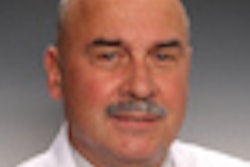
Adult Medicaid dental benefits can serve as economic indicators. When times get tough, they often end up on state government chopping blocks.
This has certainly been true in recent years as states across the U.S. have struggled with the lingering effects of the recession.
Even Massachusetts, known for its once-generous adult plan, sharply pared back benefits in 2010, eliminating restorative endodontic and periodontic services and coverage for crowns and dentures.
But oral health advocates, consumers, and the state dental society fought back. And on January 1 of this year, they were able to celebrate a partial victory. It was on that day that adult beneficiaries regained coverage for natural-colored restorations in their six upper and six lower front teeth.
"We're absolutely grateful to the state in taking that step," said Courtney Chelo, oral health coordinator for the Boston-based advocacy organization Health Care For All.
While in some ways an incremental measure, the move could have both public health and economic benefits, she and other backers say.
Labor market discrimination
In fact, helping poor adults maintain a good appearance is a good investment for the state as the economy rebounds, said Brent Martin, DDS, MBA, dental director for MassHealth, the state's Medicaid program. Good oral health has been shown to assist people in finding jobs, he noted.
“Aesthetics, your smile, and presentation many times influence your ability to get employed.”
dental director
"Aesthetics, your smile, and presentation many times influence your ability to get employed," he said, citing a 2008 report, "The Economic Value of Teeth," that examined labor market discrimination based upon personal appearance and concluded that women from poor families who resided in communities with fluoridated water during childhood earn higher wages than women who did not.
"People with the same skills but with a full complement of their natural dentition were more likely to get hired than those with missing teeth," Dr. Martin said.
The state made a good decision in restoring benefits for front teeth, agreed Paula Friedman, DDS, president of the Massachusetts Dental Society. But she hopes this is just a first step in restoring full benefits in the state.
"Silly as this may sound, some people think that the back teeth are important too," she said.
While dental benefits for poor children under Medicaid are mandated by federal law, adult benefits are considered optional, and Massachusetts was one of a number of states -- including Pennsylvania, Illinois, California, and Washington -- to cut back on them in recent years.
Currently, about half the states limit adult care to basic necessities, such as pain relief, emergency services for injury and trauma, and extractions, leaving millions of adults without access to routine care and vulnerable to pain, infection, and diminished productivity, according to a policy brief issued last year by the Kaiser Commission on Medicaid and the Uninsured.
After making the cuts, states see reduced Medicaid spending. But the costs of care are often shifted to other care settings such as emergency rooms and community health centers, according to Kaiser.
Impact on patients, providers
The loss of dental coverage also takes a heavy toll on patients, said MassHealth beneficiary Harriotte Hurie Ranvig, a blind ethnomusicologist who has been unsuccessful in finding a full-time job with benefits.
"A huge number of adults cannot get restorative or preventive care," said Ranvig, who volunteers as a community leader for Health Care For All. "Dental health is as critical as any other part of our health."
Ranvig said she has firsthand experience with the challenges of keeping up with care without benefits. After learning she needed a root canal and crown, she arranged with her dentist to pay for the $2,500 worth of work in "small installments." The tooth failed anyway, while she was paying the bill, and she had to have it extracted.
The cuts have been hard on dentists too. In Massachusetts, adult coverage has been uneven for the past decade, even as the dental society has worked hard and successfully in recent years to recruit more providers to accept MassHealth, Dr. Friedman noted.
Adults enjoyed full benefits in the state in 2002. But they lost some coverage, including denture services in 2003. The services were restored in 2006, only to be cut again in 2010.
"It's been very discouraging for patients and dentists to find that people covered under Medicaid have not have access to oral health services," Dr. Friedman said. "We have been disappointed that for whatever reason, whether political or economic, the government has seen fit to withdraw dental benefits. So we recruit the providers, and then the patients aren't eligible for services."
All benefits restored?
In response, Friedman said the dental society, including dental students, have been lobbying hard for two years to get the benefits restored. Now they may be getting their wish.
In his spending plan for fiscal 2014, Gov. Deval Patrick is calling for the return of adult dental benefits back to their full 2002 levels.
The governor has proposed to restore the adult dental benefits under MassHealth, confirmed state Department of Health and Human Services spokesman Alec Loftus.
The price tag for the full restoration of benefits for 600,000 adults who are currently eligible, plus some adults who will come into the system as a result of healthcare reform, is estimated at roughly $130 million a year. An influx of federal healthcare reform dollars will help pay for the restored benefits, according to state officials.
"We are looking at restoring them in January 2014, because that's when we will be fully implementing the Affordable Care Act," said legislative analyst John May. "There will be a jump in federal revenues at that time."
Pending state legislative and federal regulatory approval, adult benefits would be fully restored starting January 1, 2014.
And speaking for the state dental society, Dr. Friedman had this to say: "It can't happen soon enough as far as we're concerned."



















